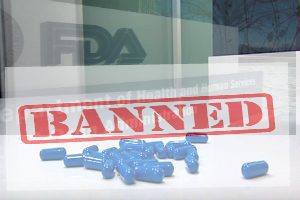
FDA To Ban Dietary Supplements. On Sunday, United States Senator Chuck Schumer of New York called on the Food and Drug Administration (FDA) to ban a number of widely used dietary supplements that Schumer says contain hidden stimulants. Schumer says many popular dietary supplements contain an addictive stimulant, similar to amphetamine that is not […]

FDA To Ban Dietary Supplements. On Sunday, United States Senator Chuck Schumer of New York called on the Food and Drug Administration (FDA) to ban a number of widely used dietary supplements that Schumer says contain hidden stimulants.
Schumer says many popular dietary supplements contain an addictive stimulant, similar to amphetamine that is not listed on the label or is listed as a botanical extract, WHEC10 in Rochester reports.
Sen. Schumer says the chemical poses a serious risk to people who use those supplements, and he says the FDA should recall them. The FDA was recently accused being slow to take action against supplements that contain chemical ingredients that pose health risks to supplement takers.
Though the FDA determined two years ago that nine supplements contained the amphetamine-like chemical BMPEA, the agency did not make public the names of the supplements or issue a consumer alert, the New York Times reports.
Canadian health authorities pulled supplements containing BMPEA from store shelves in December, and warned consumers: “Amphetamine stimulants can increase blood pressure, heart rate and body temperature; lead to serious cardiovascular complications (including stroke) at high doses; suppress sleep and appetite, and be addictive.”
The FDA does not currently have the authority to regulate supplements in the same way it regulates drugs and medical devices. Supplements do not undergo testing for safety and effectiveness before they reach the market. The agency takes action against tainted or mislabeled supplements after consumers are harmed, according to the Times.
FDA scientists published an article last year in the Journal of Pharmaceutical and Biomedical Analysis reporting that a number of popular supplements listed the little-known plant acacia rigidula on their labels.
Dr. Pieter A. Cohen, an assistant professor at Harvard Medical School, who studies supplements, says it is not uncommon for companies to spike weight-loss and exercise supplements with amphetamine-like chemicals, but disguise the chemicals under plant names to create the impression that they are natural botanical extracts.
In 2014, Dr. Cohen wrote in the Harvard Public Health Review “there is no legal over-the-counter botanical supplement that has demonstrated clinical efficacy as a diet pill .”
.”
In 2013, the dietary supplement OxyElitePro, used for weight loss and muscle building, was linked to dozens of cases of liver disease, mostly in Hawaii, according to The Associated Press. One person died, two needed liver transplants, and others suffered permanent liver damage.
In addition to containing hidden drug ingredients, many supplements are simply fraudulent: they do not contain the main ingredient listed on the label or they are contaminated with unlisted ingredients, including potential allergens.
New York State attorney general Eric Schneiderman accused national retailers GNC, Target, Walgreens and Wal-Mart of selling fraudulent dietary supplements , which, the attorney general said in a cease-and-desist letter to the companies, “present considerable health risks for consumers.”
, which, the attorney general said in a cease-and-desist letter to the companies, “present considerable health risks for consumers.”
Many public health experts say the FDA is not effectively policing the $33 billion-a-year supplement industry and they point to the fact that the current and immediate past heads of the division that oversees supplements come from the supplement industry, according to the Times.
The personal injury attorneys at Parker Waichman LLP offer free, no-obligation case evaluations. For more information, fill out our online contact form or call 1-800-YOURLAWYER (1-800-968-7529).


